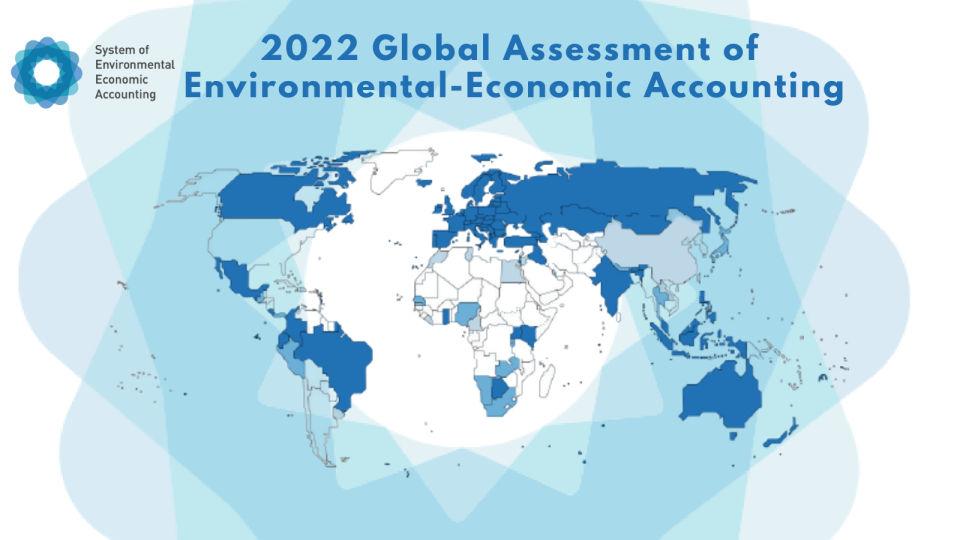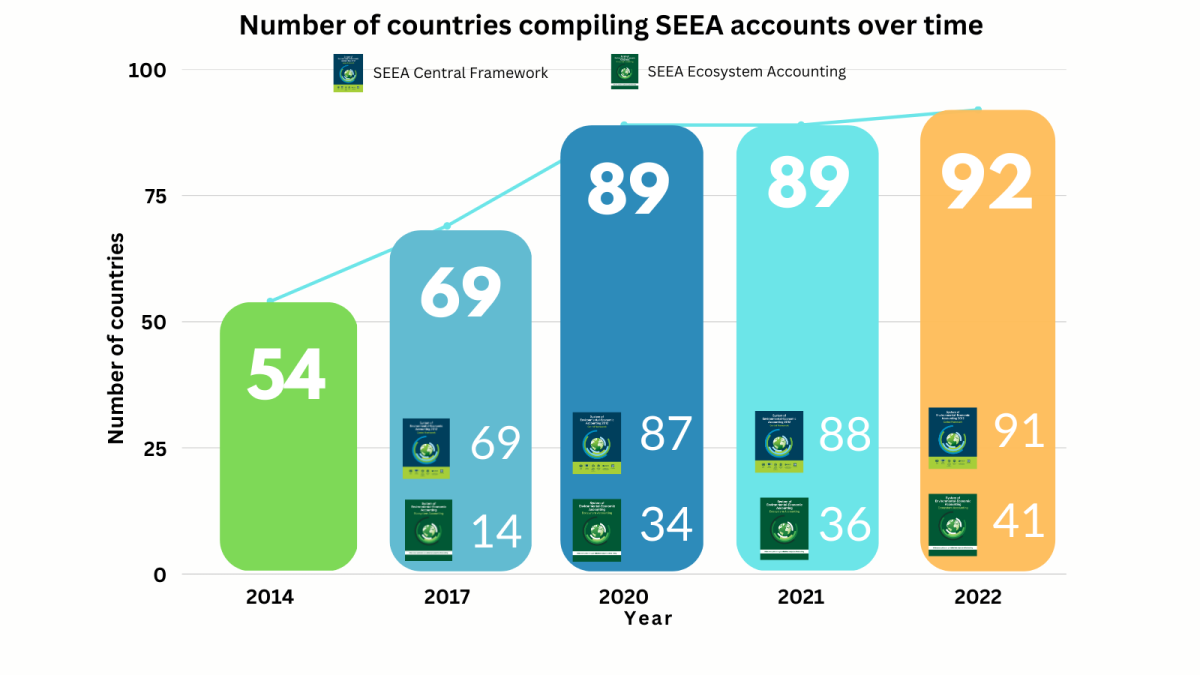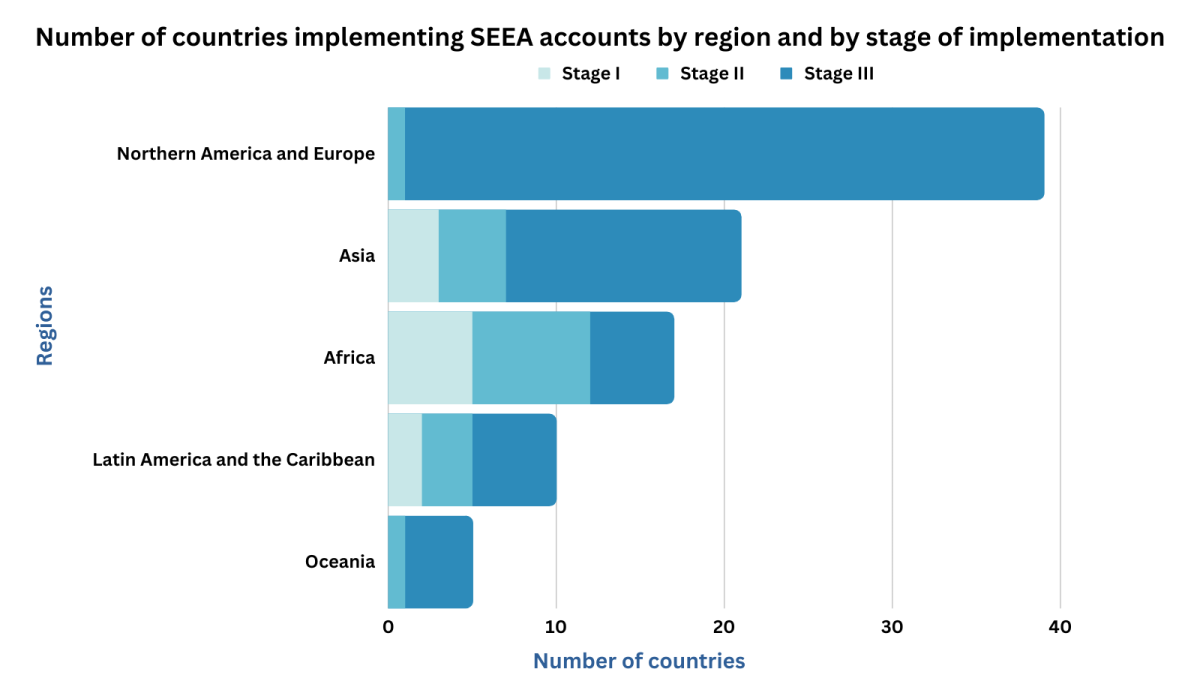Assessing the state of the SEEA: 2022 Global Assessment of Environmental-Economic Accounting

The UN Statistics Division (UNSD) released the results of the 2022 Global Assessment of Environmental-Economic Accounting and Supporting Statistics (Global Assessment) last month, which indicated that 92 countries currently compile SEEA accounts, a net increase of three countries from 2021. Nearly all countries (91 out of 92 countries) implementing SEEA accounts compile the SEEA Central Framework (SEEA CF) while 41 countries compile the SEEA Ecosystem Accounting (SEEA EA).
Since 2014, UNSD has been tracking information on the implementation of the SEEA accounts around the world, with the administration of a detailed survey sent every three years to all countries. In addition, since 2021, a shortened version of the Global Assessment is administered annually to collect information on the number of countries compiling SEEA accounts to report on the SDG indicator 15.9.1 (b), including the stage of implementation of each respondent country.
The results of the 2022 Assessment indicate a growing interest in ecosystem accounting. While the increase in the number of countries compiling SEEA CF was only 3% between 2021 and 2022, SEEA EA compilation grew 12% over the same period. The number of countries compiling SEEA CF and/or SEEA EA over the years can be seen in the figure below.

A more detailed picture of the results is provided by disaggregating the stage of implementation of each respondent country into three progressive stages: Stage I – compilation, Stage II – dissemination and Stage III – regular combination and dissemination. According to the 2022 results, 72 per cent of countries are categorized into Stage III; 17 percent into Stage II; and 11 percent into Stage I.
The implementation of the SEEA varies among regions. Europe and Northern America are the regions with the highest percentage of countries at Stage III of implementation (38 out of 39 countries, or 97%), while Africa has the highest percentage of countries in the Stage I (5 countries out of 17, or 29%).

The results of the Assessment indicate the importance of building capacity for SEEA compilation. While there was an increase in the number of countries compiling the SEEA, the increase was not large. Similarly, there is a continuous need to raise awareness of the SEEA on the part of users. As laid out in Implementation Strategy for the SEEA EA, scaling up the implementation of the SEEA will require a multi-stakeholder approach, with a view towards mainstreaming the accounts in policy. In this context, promoting the compilation and use of the accounts to support climate change and biodiversity initiatives such as the recently adopted monitoring framework of the Kunming-Montreal Global Biodiversity Framework and the new G20 Data Gaps Initiative will possibly boost the implementation of the SEEA.
The next full Global Assessment will be administered during the fourth quarter of 2023 to collect more detailed information on the compilation of accounts in all countries including information on institutional arrangements, funding, capacity building, policy uses and future plans of the SEEA.
To find more information on the current Global Assessment as well as past assessments please click here.
